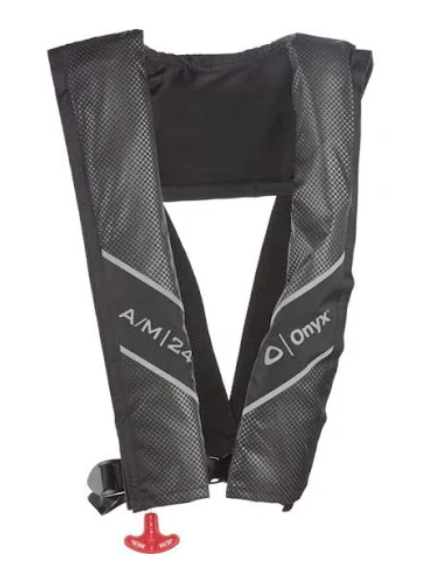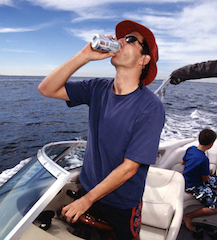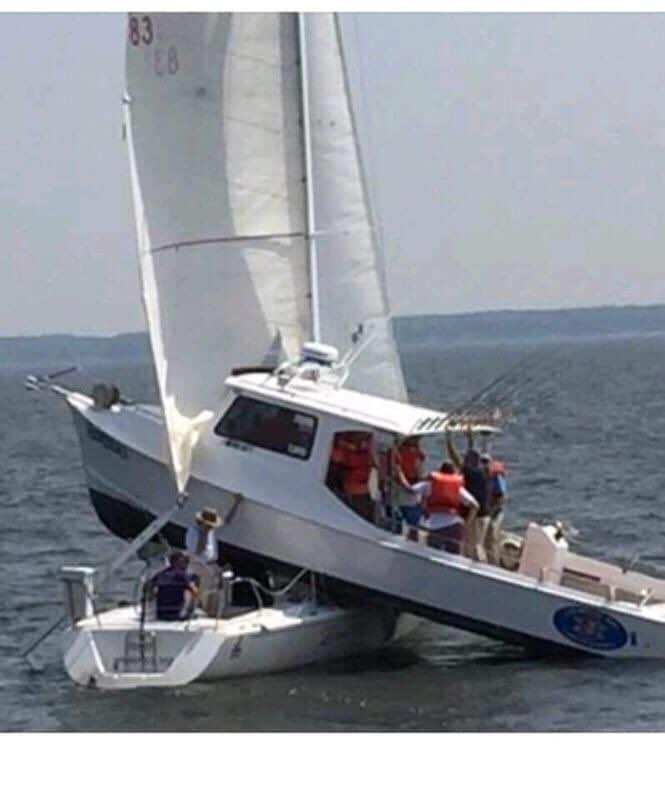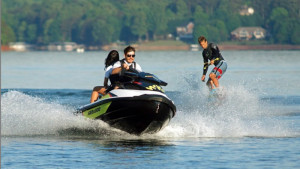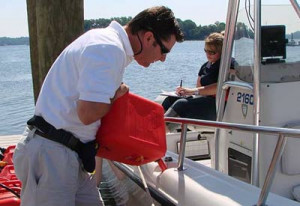Here are the Top 10 Boating Safety Tips:
1. Carefully inspect your boat before launching.
Each spring we read about dozens of accidents that occur because skippers did not do a routine inspection of their vessel before putting it in the water. One never knows what happened to the boat over the winter — hose clamps can break, rubber hoses can split or rot. Even if you have had a professional boat yard prepare your boat for commissioning, you must absolutely check every through hull, every hose and connection and all safety aspects of the boat yourself. You’ll be surprised what you might find out of order.
2. Make sure the conditions and your boat are a good match.
Most boats are designed to be used on small lakes, rivers and protected bays where most people do their boating. Typically, that means the boats are small and have a low freeboard. They are intended for conditions where there is a low wave height. Don’t take your boat into conditions for which it was not intended.
3. Wear a life vest.
If you dislike wearing the cheap, bulky day-glow orange PFDs, you can get an automatically inflating type vests that blend in with your clothes for less than $75. They are USCG approved.
4. Carefully distribute the load in your boat and don’t overload.
Many accidents in small boats are caused by an improper load distribution in the boat or overloading it in the first place. There is a plate by the helm in every boat giving the USCG capacity of the boat in the number of “persons.” Obey the limit, keep weight in the center of the boat, and don’t let your passengers move around without being mindful of the boat’s CG.
5. Don’t drink and drive.
While this used to be common practice among boaters, it is no longer what good seamen (and seawomen) do. The reason is that thanks to better communications we now all know how many tragic boating accidents there are each year involving alcohol. For the same reason that DUI is a serious offense on the highways, so to is it dangerous on the water. Local judges and juries are now throwing the book at DUI boaters involved in an accident, and that means serious jail time.
6. Don’t drive fast at night.
All motorists know that they should never drive faster than they can see and stop at night. The same applies, but even more so, on the water when skippering a boat. Boats don’t have headlights and even if a searchlight is used it only illuminates a narrow channel of water. Don’t assume you are the only one out boating at night. And remember, breakwaters, docks, pilings and deadheads are invisible at night and will stop your boat cold.
7. Keep a good and constant look-out.
One of the basic rules of good seamanship is to always keep a good lookout. The faster you go in the daytime, the faster things happen on the water. Remember that most people on the water do not know the rules of the road. You must spot potential danger while piloting and act accordingly to avoid trouble.
8. Stay away from other boats going fast.
Always be alert to boats that are going fast. Don’t assume they have a skipper who is looking where he is going. We can tell you from personal experience that many people pulling a skier do not have a lookout and the captain is looking backwards! It is too easy for many skippers to get distracted while driving fast, not see you, and steer your way. Our rule of thumb is to always steer behind fast boats no matter who has the right-of-way or what your course is.
9. Don’t forget to put in the drain plug.
Sounds obvious, but virtually every boater we know has at one time or another forgotten to put in the boat’s drain plug before launching a boat. After a long winter, boaters are naturally eager to get their boat in the water as fast as possible and it is easy to forget the plug. Tape it someplace where you can’t miss it and be reminded.
10. Before starting a gas inboard, air out the engine room and sniff.
Particularly on older boats, explosions early in the season, or just after refueling, occasionally happen. The best remedy is to open the hatch to the engine and let any fuel vapors that might be there disburse into the atmosphere. Then stick your nose down into the engine room, it is the best fume detector ever made. Only then should you start your blower and run it for a few minutes. Now it is safe to start your engine.
Boating is one of the most fun things to do in the summer! Don’t spoil it by being careless!


